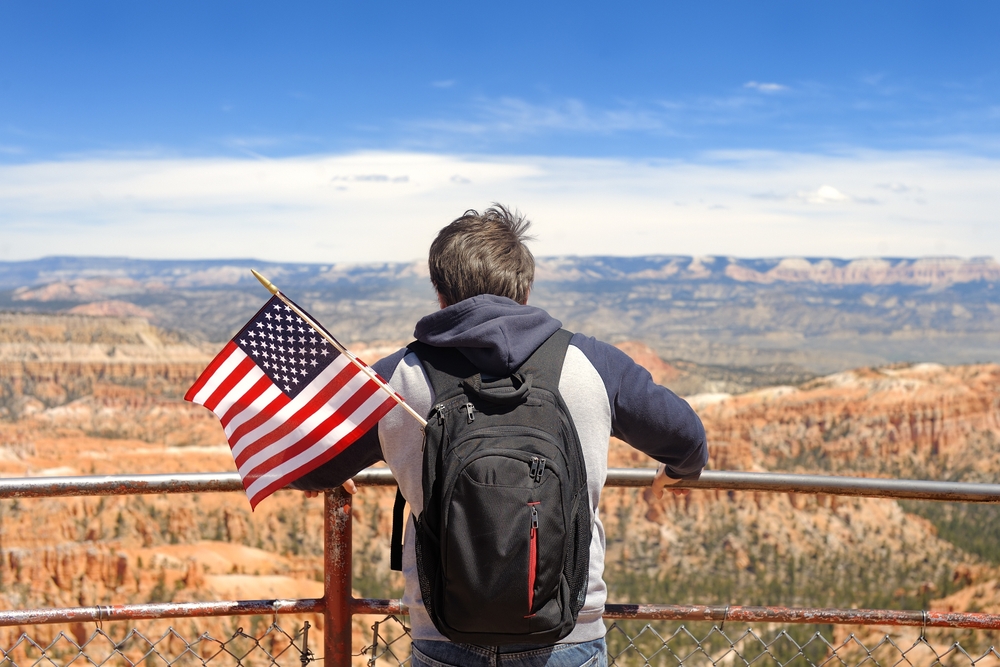Americans Abroad Voice Anxiety Under Trump Presidency
As Donald Trump’s second term unfolds, a growing number of Americans report feeling anxious about traveling internationally. Concerns about how they are perceived abroad, coupled with a noticeable shift in global sentiment toward the U.S., are affecting both personal travel experiences and the broader tourism industry.
From canceled trips to emotional distress, American travelers are grappling with heightened scrutiny and geopolitical fallout, reflecting the far-reaching impact of the current administration’s foreign and domestic policies.
Rising Fear Among American Travelers Abroad
Travelers like Sierra Malone, a digital nomad currently in Europe, are feeling heightened anxiety. “Last time [Trump was in office], it felt embarrassing; this time it feels terrifying,” she said. Although experienced in international travel, Malone is wary of potential confrontations and wary glances while overseas. Her story echoes that of many Americans who now worry about being blamed about what’s going on in the United States — concerns tied directly to the current administration’s foreign policy and rhetoric.
Similarly, Lisa VanderVeen, a school administrator who travels abroad regularly, said this term feels “more directly relevant” to foreigners. “Before, it felt more like [Trump] was viewed as a caricature of the US,” she noted. “Now, it feels like he’s perceived as a direct threat.”
Both travelers noted the challenge of distancing themselves from domestic politics while abroad, and the internal conflict of wanting to represent a different side of America, one that isn’t defined by the president. Their shared sentiment: “I’m American, but I’m not that American.”
International Opinion of the u.s. Takes a Hit
According to YouGov, European favorability of the USA has dropped dramatically across several countries. In Denmark, favorability has plunged to just 20%, down from 48% prior to the 2024 election. Countries like Germany, France, and the United Kingdom show similarly sharp declines.
The political backdrop includes controversial Trump policies such as proposed tariffs, a potential travel ban, and renewed calls to annex Greenland. These moves have alienated many in Europe and prompted some governments to advise trans and non-binary citizens to avoid the US altogether.
The situation is not limited to public opinion. Data from Tourism Economics projects that international visits to the United States will fall by 5.1%, with a corresponding 11% drop in spending — amounting to a projected $18 billion loss in 2025. Canadian tour operators are seeing cancellations of up to 30%, driven by both political unease and perceived threats to personal safety.
Industry Braces for Long-Term Effects
For Raj Gyawali, founder of socialtours in Nepal and partner at Ethical Travel Portal Norway, the impact is tangible. One American traveler recently canceled a confirmed trip, citing fears about how they would be perceived abroad. “I completely understand the sentiment,” said Gyawali, adding that this is a growing concern among his U.S. clientele.
Rather than downplay these anxieties, Gyawali believes the travel industry needs a more proactive approach. “Time to strategize how to protect tourism in this Trump-affected world,” he wrote in a recent LinkedIn post. He’s even proposed forming a “think tank” of travel experts to anticipate and address crises before they impact the industry further.
Jessica Flores, chief experience officer at Tourism Cares, agrees that empathy and understanding are crucial. “Try to understand the underlying concerns and adjust your behavior if necessary,” she advises, reminding travelers that respectful engagement can diffuse tensions and foster global understanding.
How Travelers Can Adapt and Respond
For Americans traveling under these new conditions, experts like Nick Leighton, co-host of the podcast “Were You Raised by Wolves?”, recommend small but mindful adjustments. That includes leaving overtly patriotic or political clothing at home and avoiding the temptation to falsely claim Canadian nationality. “Honesty is always the best policy,” Leighton said. “Let people meet many types of Americans — we’re more than our passports.”
Ultimately, many travelers see these challenges as an opportunity for deeper connection. VanderVeen put it best: “Travel is a chance to show that Americans are human, too — and not all of us support what’s happening politically.”
As global perceptions evolve, so too must the strategies for navigating them — both at the personal and industry level.


